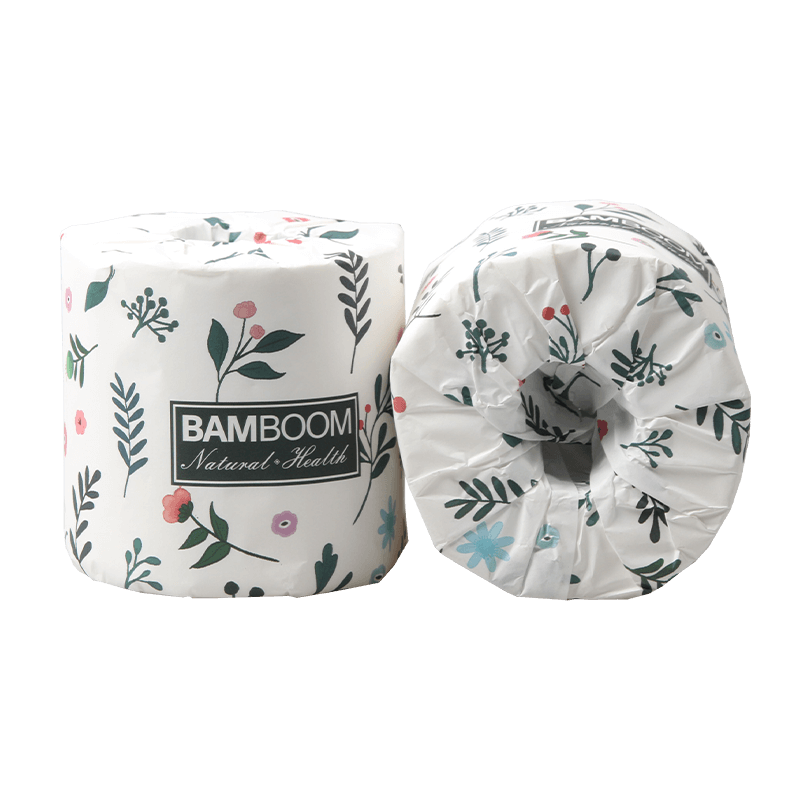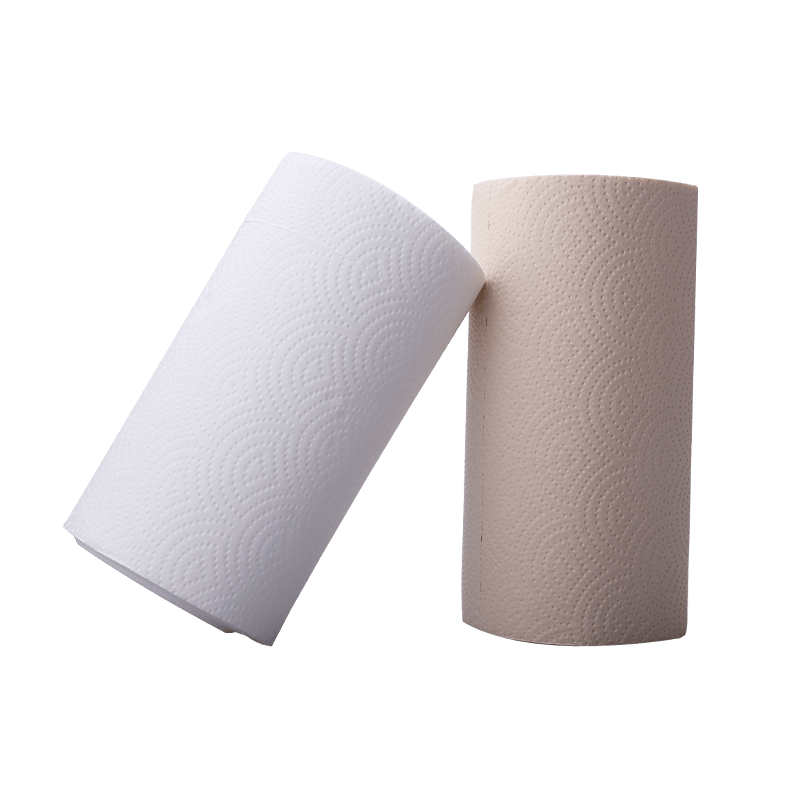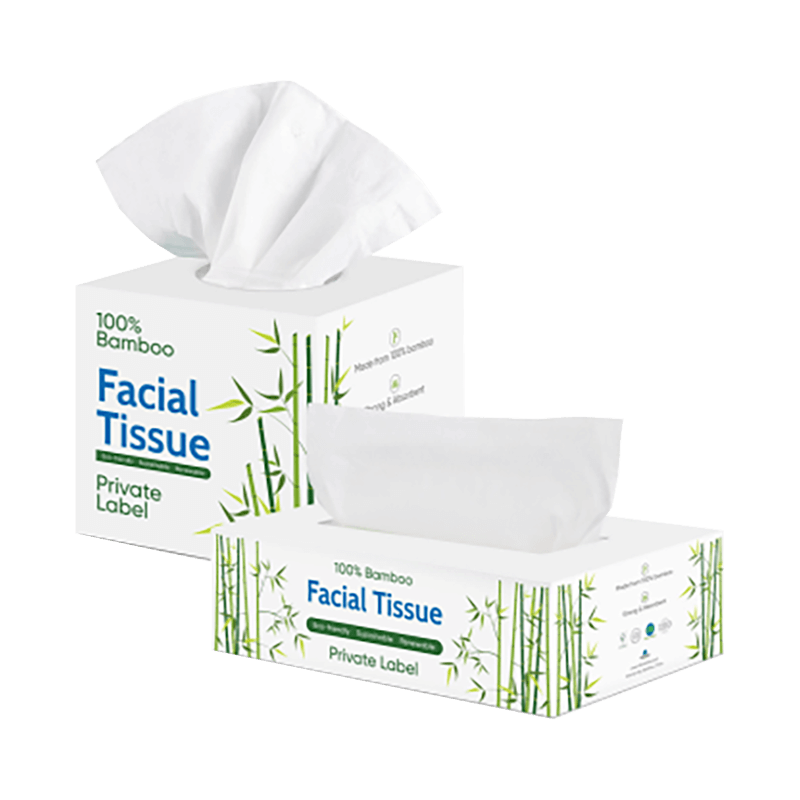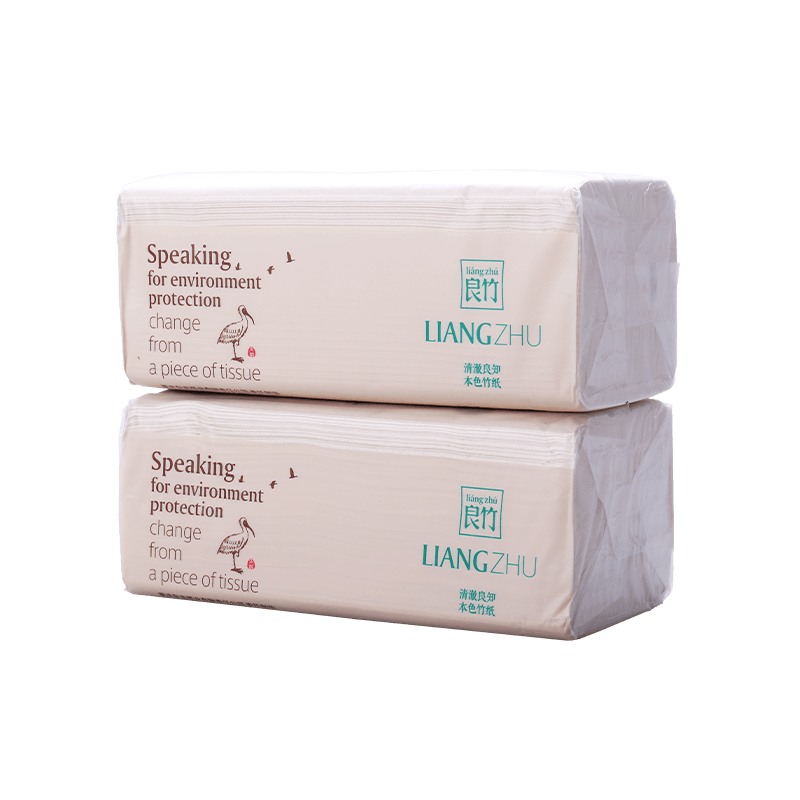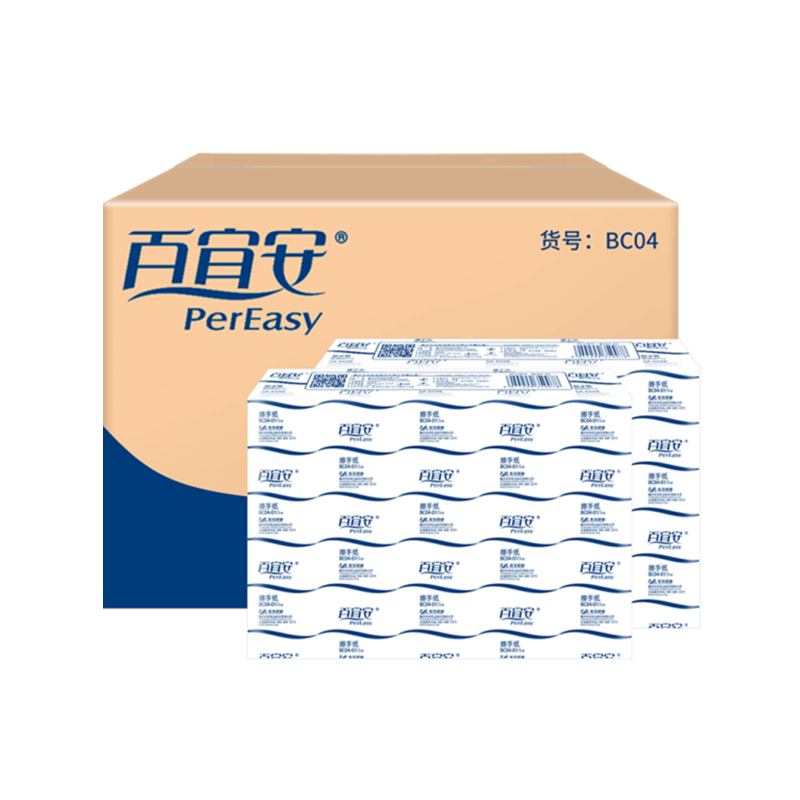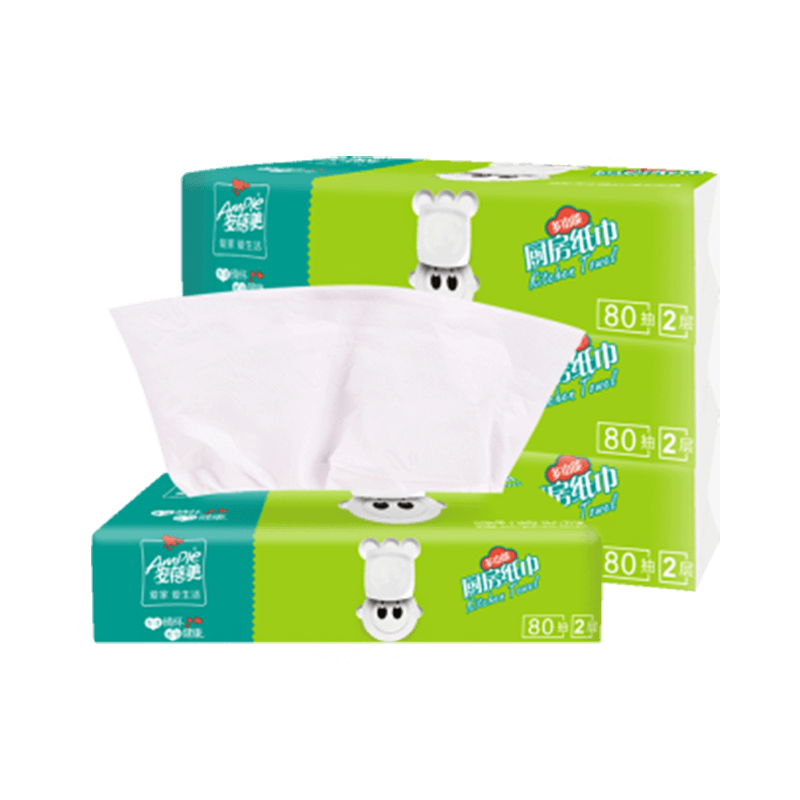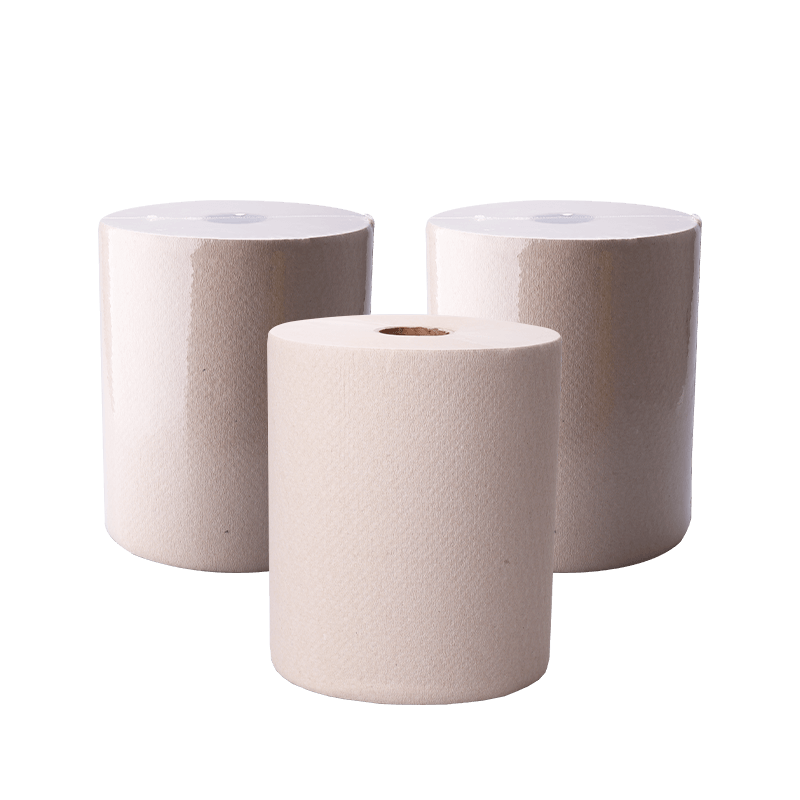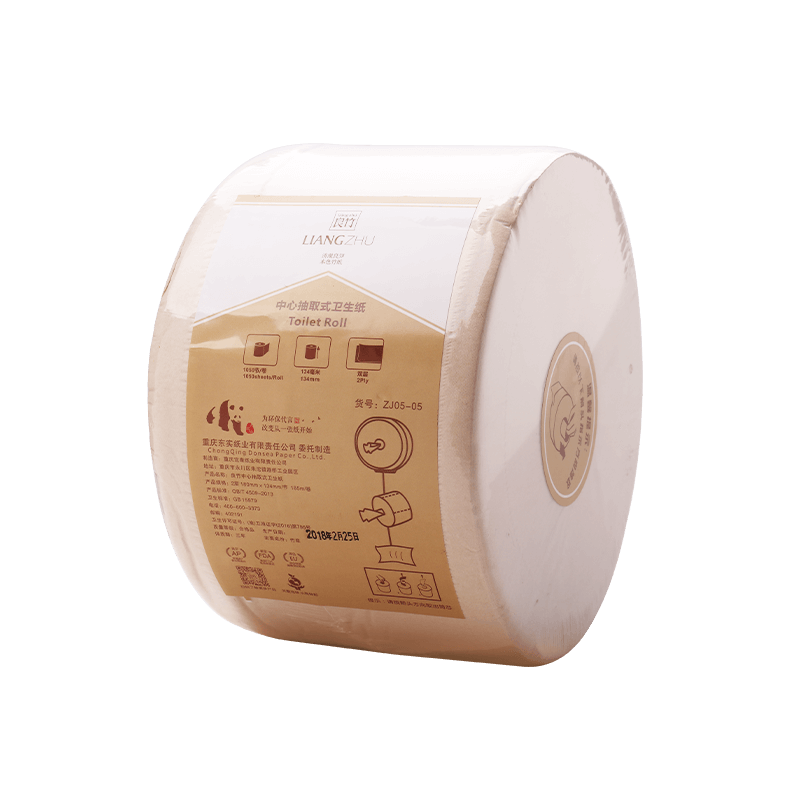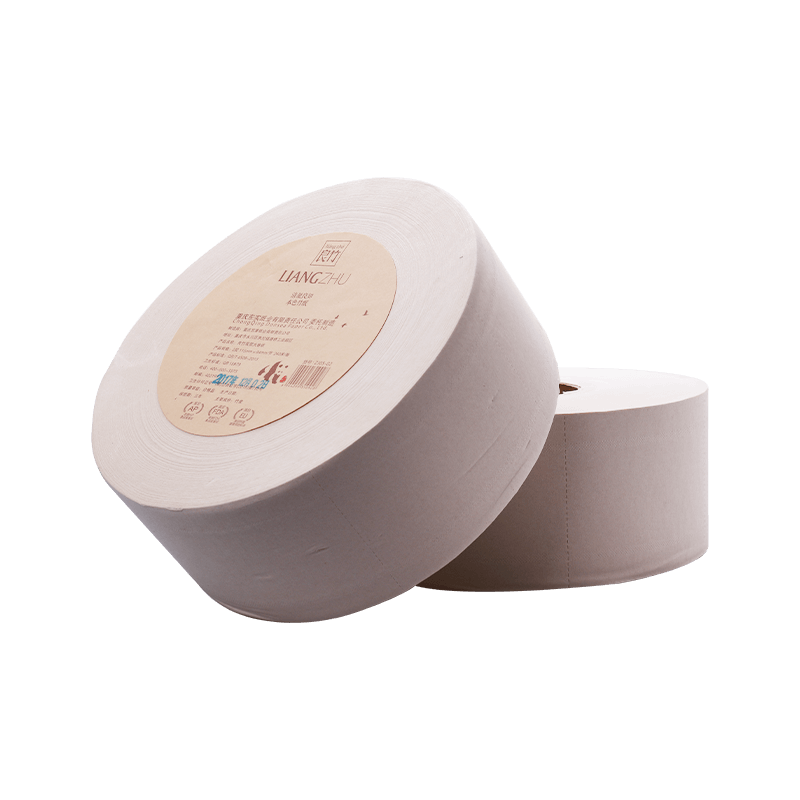Comparison of Bamboo, Recycled and Virgin Pulp Tissue Paper: Which Type to Choose
As consumers become more aware of environmental and sustainability issues, the choice of tissue paper is getting renewed attention. Among the most common options in the market are bamboo tissue paper, recycled tissue paper, and virgin pulp tissue paper. Each type is unique and has its own strengths and weaknesses in terms of the environmental impact, efficiency and cost. This article offers a thorough comparative analysis of the three categories to help consumers and businesses make informed decisions.
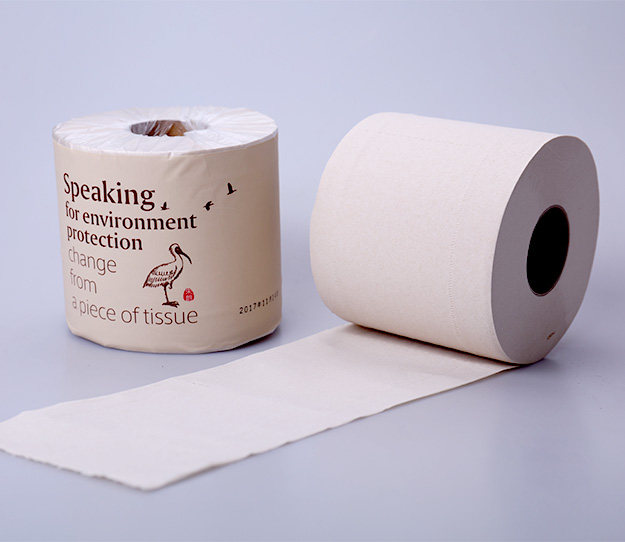
Understanding Bamboo Tissue Paper
Bamboo tissue paper is made from bamboo pulp, which is then processed into soft, biodegradable products like facial tissues, toilet paper napkins, napkins or paper towels. The bamboo used for these products is usually harvested from plantations that are managed, in which the plant is growing quickly, without the need for chemical fertilizers or pesticides. The process of production involves the pulping of bamboo fibers, then changing them into usable tissue formats, usually with little environmental impact when compared to natural wood pulp.
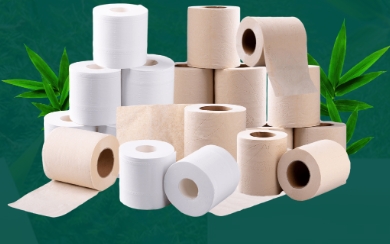
Advantages
- Sustainability: Bamboo is among the fastest-growing species on Earth and is harvested every 3 to 5 years without planting. Bamboo’s ability to regenerate is a very sustainable resource, thereby lessening the strain on forests.
- Lower Environmental Footprint: Bamboo needs less water and uses fewer chemicals to grow and process, compared to trees. In addition, it absorption of carbon dioxide is higher and oxygen releases are greater, thereby contributing positively to the air quality as well as climate protection.
- Biodegradability: Bamboo tissue is completely biodegradable and is able to break down naturally which reduces environmental pollution, making it suitable for septic systems.
- Softness and Strength: Modern processing techniques enable bamboo to become flexible and soft. It can often beat traditional tissues in terms of comfort, with a higher tensile force.
- Hypoallergenic Properties: Bamboo fibres naturally have antibacterial properties as well as hypoallergenic, which makes bamboo tissue ideal for people with sensitive skin or allergies.
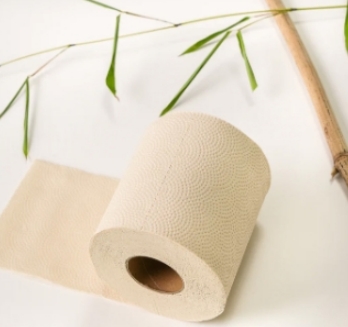
Limitations
- Higher Cost: Due to the present scale of manufacturing and supply chain logistics bamboo tissue can be more costly than conventional or recycled pulps that are virgin.
- Transportation Impact: Bamboo plantations are plentiful in Asia The benefits to the environment could be diluted due to the greenhouse gases resulting of long-distance shipping to international markets.
- Variability in Quality: The manufacturing method and brand Some bamboo tissue types may appear rougher and less absorbent than the premium virgin pulp tissues.
- Limited Availability: Although bamboo tissue is growing in popularity, it’s not as readily available as traditional tissues, especially in specific regions or in bulk purchase scenarios.
Common Applications
- Toilet Paper: Bamboo toilet paper is among the most popular and popular bamboo-based products. It provides a blend of softness, strength, and biodegradability. This makes it perfect for home and commercial usage.
- Facial Tissues: Because of its soft touch and hypoallergenic properties, the bamboo facial tissues sought-after by those suffering from skin sensitivities or allergies.
- Paper Towels: Bamboo kitchen paper towels are tough and absorbent, ideal for cleaning kitchen surfaces, wiping and other household chores.
- Napkins: Bamboo napkins are utilized for both dining at home and environmentally-friendly catering services, providing an alternative to traditional alternatives.
- Baby Wipes and Feminine Hygiene Products: The non-irritating, antibacterial properties bamboo fiber makes it a great choice for cleansers and other products made to be used by people with sensitive skin.
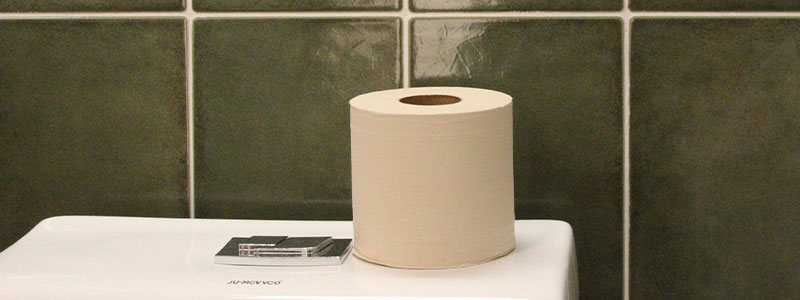
Understanding Recycled Tissue Paper
Recycled tissue papers are made predominantly from recycled paper products like newspaper, office paper and even tissues that were previously used. The collected materials are cleaned, de-inked and transformed into pulp that is then transformed into products made of soft tissue such as facial tissues, toilet paper as well as paper towels and napkins. The quality of recycled tissue is contingent on the quality of recycled paper as well as the technology used.
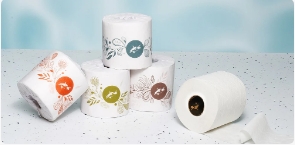
Advantages
- Environmental Conservation: Recycled tissue dramatically reduces the need in virgin wood pulp which helps preserve forests and preserving biodiversity. Each ton of recycled papers conserves 17 trees and massive amounts of energy and water.
- Waste Reduction: It helps divert the waste of paper from landfills and incinerators, thereby supporting the waste management process and reduces greenhouse gas emissions that are associated in the process of decomposition and burning.
- Lower Energy and Water Use: Recycled tissue production generally requires much less water and energy as compared to virgin pulp, especially when the most advanced recycling techniques are used.
- Cost-Effectiveness: In many instances the tissues made from recycled materials are more costly to produce and buy, particularly for large buyers such as the public sector and institutions.
- Support for Circular Economy: Reusing paper materials, recycled tissue helps sustain production and helps to reduce the waste material usage.
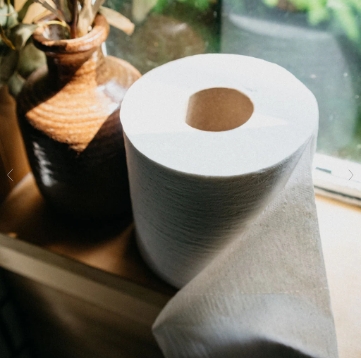
Limitations
- Reduced Softness and Strength: The fibers that are recycled degrade every cycle, which makes the fiber less durable and soft as bamboo or virgin alternatives. This can affect the user experience, especially when it comes to personal care.
- Chemical Treatment: The process of recycling often involves bleaching, de-inking, or cleaning steps. These can contain chemicals that decrease the environmental impact if they are not properly controlled.
- Shorter Fiber Lifespan: Paper fibers are able to be recycled a specific amount of times (typically 7 to 7 cycles) before they weaken to the point of being unusable and requiring mixing with virgin fibers for strength.
- Limited Aesthetic Appeal: Some recycled tissue paper may appear duller or have small discoloration. This can influence the perception of consumers, especially in the premium market.
Common Applications
- Toilet Paper: Recycled toiler paper is commonly employed in offices, government buildings and homes that are eco-friendly. While it might be less soft, it’s ideal for use in large quantities.
- Paper Towels: They are widely employed in bathrooms, kitchens and industrial environments for drying and cleaning when absorbency is more important than the softness.
- Facial Tissues: Although not as common in the high-end markets the recycled facial tissues are widely used in the field of institutions and eco-labeled items providing a balanced equilibrium between comfort and sustainability.
- Napkins: Recycled napkins are a favorite in cafeterias, restaurants, and other events where sustainable branding is a top priority.
- Commercial and Industrial Use: Recycled tissues are utilized in food service and hospitality sectors where efficiency and functionality surpass the luxury.
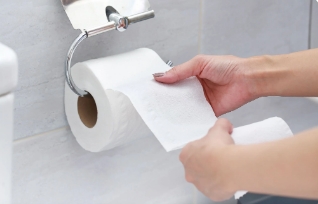
Understanding Virgin Pulp Tissue Paper
Virgin pulp tissue paper is made of the cellulose fibers that are extracted from fresh unprocessed, untreated wood. The raw material is typically taken from forests that are specifically planted for commercial usage. The process of manufacturing involves bleaching, pulping (often with chlorine-free or completely chlorine-free methods) and refining the fibers in order to make premium quality paper that is ideal for cleaning, personal hygiene industrial, and other uses.
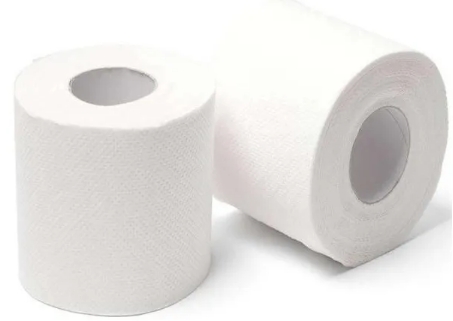
Advantages
- Superior Softness and Strength: The fibers of virgin pulp are more long stronger, more durable, and more stable in comparison to the recycled versions. This results in exceptionally soft, durable tissue that offers superior user comfort and resilience–especially in multi-ply products.
- Consistent Quality: With carefully controlled fiber sources and refined manufacturing methods the virgin pulp tissue is a the same product with respect to thickness, texture and performance.
- Enhanced Absorbency: The fiber’s structure is intact, which helps to improve the absorption of liquids and makes virgin pulp the ideal choice for drying applications that require efficient or cleaning.
- Whiteness and Aesthetics: It is easy to get virgin pulp bleached and whitened which results in visually clean and vibrant tissue that attracts the premium and luxury markets.
- Longer Shelf Life and Stability: With no contaminants or weaker fibers often found in recycled tissue the virgin pulp tends to retain its original quality over more time in storage and usage.
Limitations
- High Environmental Impact: The process of making virgin pulp causes destruction of habitats, deforestation and greenhouse emissions of greenhouse gases. A large amount of energy and water are required to process it.
- Non-Renewable Resource Use: In contrast to bamboo or recycled paper The pulp of virgin origin comes from finite resources which require years to regenerate, causing questions about sustainability over the long term.
- Chemical Usage: The processes of bleaching and pulping could involve chemicals that can cause health and environmental hazards If not properly controlled particularly in less-regulated or older facilities.
- Lack of Eco-Certification in Some Products: Some virgin pulps are not sustainably produced. Products that aren’t certified (e.g., FSC or PEFC) might contribute to unsustainable practices in forestry.
- Higher Carbon Footprint: In comparison to bamboo or recycled tissue, pulp made from virgin materials generally have a greater carbon footprint due to the logging transport, processes that require energy.
Common Applications
- Toilet Paper: Toilet paper that is high-end or mainstream are typically made of virgin pulp in order to guarantee durability, softness and a luxurious feel, particularly in quilted or multi-ply formats.
- Facial Tissues: Facial tissues made of virgin pulp are a popular choice for personal care due to their soft texture, high absorbency and their softness on the skin.
- Paper Towels: They are utilized in commercial and residential situations where durability and absorption are vital, particularly when cleaning up spills or drying hands.
- Napkins: The virgin pulp napkins are extensively utilized in hotels, restaurants and homes, providing the perfect blend of design along with softness, reliability, and elegance.
- Industrial and Institutional Products: A lot of industrial wipes as well as institutional tissue products still depend on virgin pulp to guarantee quality, particularly in the areas of hospitality and healthcare.
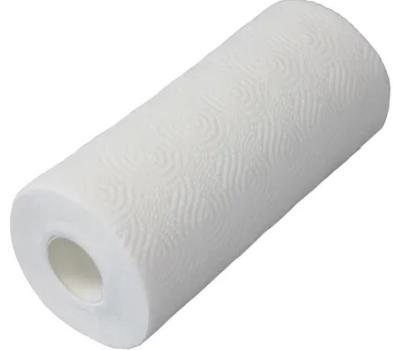
Key Differences among Bamboo, Recycled and Virgin Pulp Tissue Paper
| Attribute | Bamboo Tissue Paper | Recycled Tissue Paper | Virgin Pulp Tissue Paper |
| Raw Material Source | Bamboo grass that is fast-growing | Post-consumer waste and post-industrial | Fresh wood derived from trees that have been harvested |
| Sustainability | Eco-friendly and renewable | Helps reduce waste and promotes circular economy | Least sustainable; contributes to deforestation |
| Carbon Footprint | Low (but could rise with international transport) | Generally low | A high result of logging and processing |
| Softness | Soft and comfy | Moderate softness; differs by brand | Soft and luxurious, it’s a dream to touch. |
| Strength | Naturally robust and tear-resistant | Often weaker due to short fibers | Extremely strong because of lengthy, unbroken fibers |
| Biodegradability | Excellent; septic-safe | Excellent; septic-safe | Excellent; septic-safe |
| Chemical Usage | Very little in the field; moderate in processing | It could involve bleaching and de-inking chemicals | Sometimes, significant bleaching is required and chemical treatments |
| Cost | Medium to high | Low | Medium to high |
| Availability | The rate of increase is increasing, but it’s still limited in certain regions | All are readily available | Accessible in a variety of ways |
| Common Applications | Toilet tissue napkins, facial tissues Paper towels | Napkins, toiletries for public restrooms for use in institutions | Premium tissues, personal care, hospitality, industrial wipes |
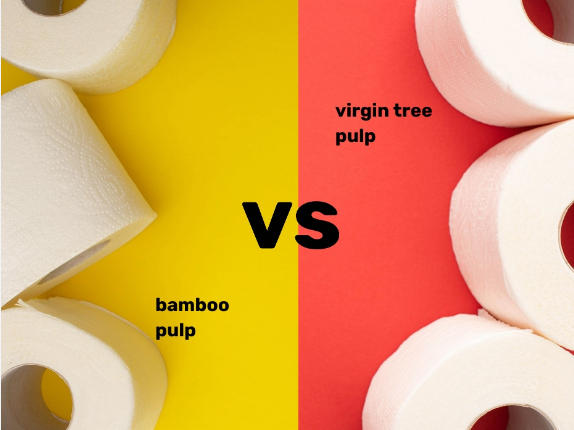
Key Factors to Consider for Choosing among Bamboo, Recycled and Virgin Pulp Tissue Paper
Bamboo, recycled and virgin pulp tissue paper, all have distinct environmental impacts, performance characteristics and price points. In order to make an informed decision, it is crucial to evaluate them from the various aspects of each.
1. Environmental Sustainability and Raw Material Source
One of the most crucial aspects in the present is the origin from the material used to make it used and the impact on the environment of the product. Bamboo tissue paper is regarded as a renewable option because of the rapid growth of bamboo that requires no replanting, and requires minimal chemical or water usage. The recycled tissue paper on contrary, decreases the need for virgin resources by reusing existing waste and is in line with circular economic objectives. Contrary to this virgin pulp tissue paper depends on trees that have been freshly harvested and raises concerns over deforestation and lengthy regeneration times. The people who value sustainability are likely to consider recycled or bamboo to be more in line with their ideals, but the carbon emissions of bamboo-sourced transportation must be considered as well.
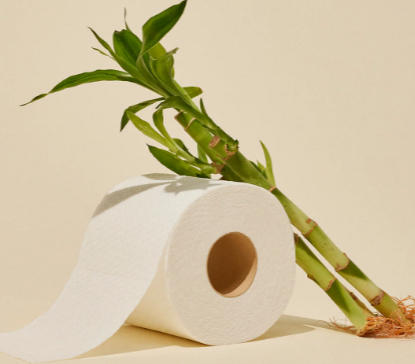
2. Performance
While environmental factors are crucial, product performance still heavily influences consumer preference, particularly in personal care applications. The pulp of virgin origin provides unbeatable flexibility and strength because of the long, solid wood fibers utilized in its manufacture. It’s particularly sought-after for premium multi-ply products, where comfort for the user is crucial. Bamboo tissue paper provides a striking balance, usually being both soft and sturdy although some brands could differ in terms of texture. The recycled tissue paper tends to be a bit thinner and less durable as the recycled fibers break down with repeated processing, but advances in the production process have enhanced quality over the last few times. If you’re looking to have the luxurious feel and long-lasting longevity, virgin pulp could be the best option.
3. Health and Skin Sensitivity
For those with sensitized skin or allergies the material’s interaction with the body is a important aspect. Bamboo has naturally antibacterial and hypoallergenic qualities and is an ideal and safe choice for those who are prone to skin irritation. Pure pulp, when created with modern chlorine-free bleaching techniques, also excels in regards to skin-safety and safety. The tissue that is recycled may have small amounts of chemical residues resulting of de-inking or sanitizing processes which makes it less suitable for use with delicate skin unless specifically treated to ensure cleanliness and safety for dermatologists. Parents and caregivers as well as those who suffer from skin issues should consider this issue with care.
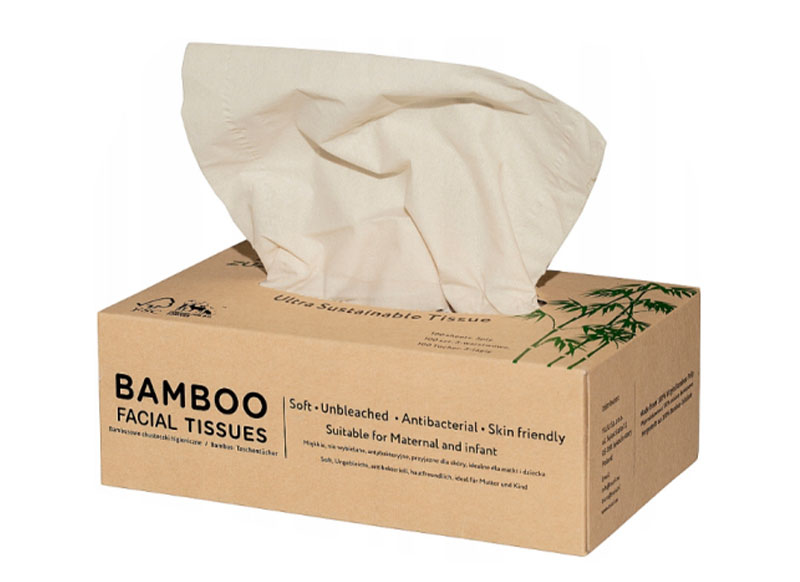
4. Cost and Accessibility
The availability of market prices and affordability also are important factors in choosing the right tissue paper, particularly for large-scale purchases from businesses or institutions. Recycling tissue paper is usually the least expensive, and offers the most basic, sustainable solution for large-scale usage in offices, schools, and public bathrooms. Virgin pulp products can vary in cost based on quality and brand, but are generally more expensive because of their premium quality. Bamboo tissue, although increasing in popularity however, it is still a niche product and may have an expensive price but prices are likely to fall when demand and production ramp up. Customers must take into consideration their budget in conjunction with their preferences and requirements.
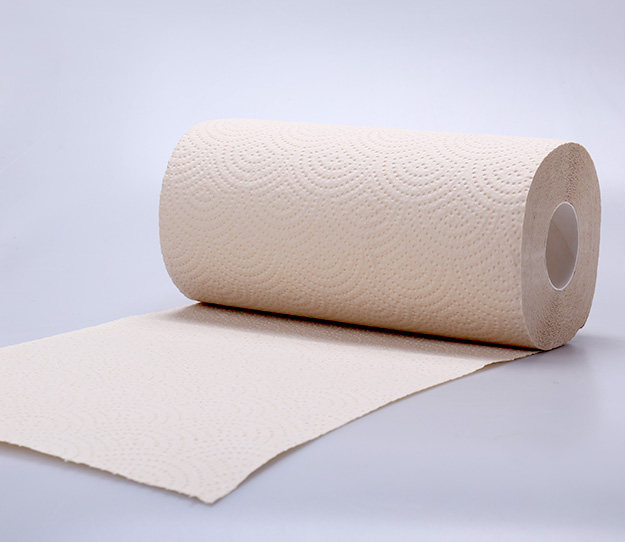
Bamboo Kitchen Roll
5. Ethical and Certification Considerations
In the end, responsible sourcing and third-party certifications can affect confidence and ethical buying decisions. Virgin pulp should be procured from sustainable certified woods (such as FSC or PEFC-certified suppliers) and recycled tissue must adhere to the standards to ensure that the processing is low-impact. Bamboo tissue may also benefit from organic certifications that prove the organic farming practices and ethical production. If you are a buyer who values transparency and corporate accountability These certifications can provide confidence and help in determining purchasing habits.
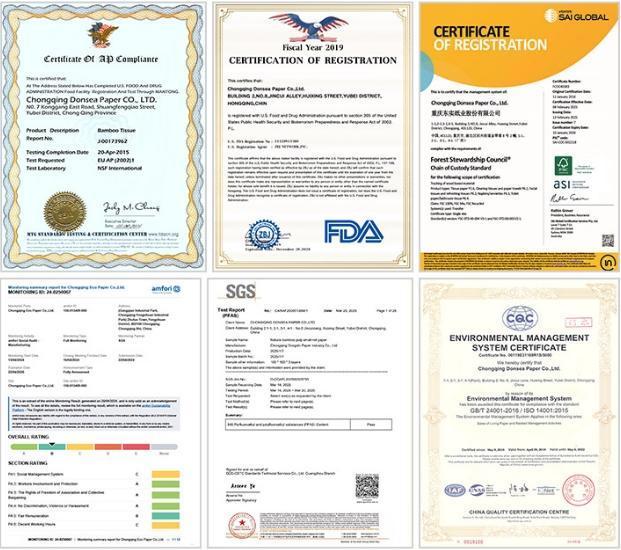
Summary
Selecting among bamboo, recycled, and virgin pulp tissue paper ultimately depends on the priorities of the user, whether it’s environmental sustainability, performance, or cost.
- Bamboo tissue offers an promising middle ground thanks to its sustainable nature and robust performance.
- Recycled tissue appeals to eco-conscious users willing to compromise slightly on softness for sustainability.
- Virgin pulp, while superior in texture and strength, comes with a notable ecological cost.
To ensure a sustainable future, both consumers and manufacturers are urged to look into greener options like bamboo and invest in innovative technologies which improve thethe quality and affordability of recycled options. With increased awareness and market demand, tissue paper industry can evolve towards more responsible production and consumption practices.

